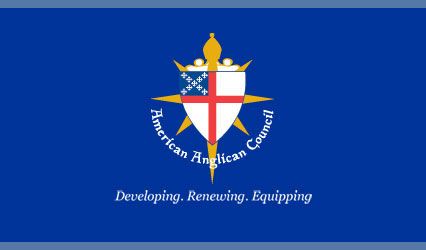Dear Friends in Christ,
Is your congregation plateaued or in decline numerically, financially, or spiritually? Do you find the focus in your church more on survival than saving the least, the last and the lost? When the subject of church planting comes up, do you immediately dismiss it and wonder why the question is being asked when your church is struggling to survive and thrive? Are you feeling a lack of motivation, or perhaps even resistance, in becoming an outreach-focused church? Are you in need of a renewal of vision, passion and ministry in your church?
By the time you read this, I will be returning from the Anglican1000 Regional Summit in Houston, Texas, where for the last three days the American Anglican Council addressed these very questions through our workshop on Church Revitalization and Renewal. For some time now we have been working to help the great number of Anglican churches in North America that are not new church plants but already in place, in some cases for many years. Partnering with bishops, dioceses, clergy and lay leaders, we are helping strengthen clergy and lay leaders who can work together as a team to revitalize local Anglican churches that may be plateaued, perplexed or in decline.
In our workshop, we help the leaders of local Anglican churches assess where their church lies on the lifecycle of a congregation: incline (growth), recline (plateau) or decline. We identify the common barriers to spiritual, missional and numerical growth at each stage of the lifecycle. We help leaders rediscover the power of vision to renew the church at whatever stage they may find themselves so that they can “jump the curve” and enter into a new season of growth and vitality.
But through our experience in working with Anglican congregations over the last three years, we are also aware of the power of the church’s unique culture or “code” of internal values that shapes both what it does and what it does not do. In the famous words of Peter Drucker, “Culture eats strategy for lunch.” We’ve learned that all the plans and planning in the world will come to naught if we don’t pay attention to these underlying and often competing values and forces within the church. In fact, church revitalization and renewal will, by definition, involve changing the culture of the church. For example, we often think, “When my church gets strong and healthy enough, THEN we will be able to fulfill the Great Commission (including planting a new church).” In fact, it is just the opposite – when our churches are truly committed, mobilized and readied to fulfill the Great Commission, THEN they will be strong enough and healthy enough to do whatever God wants them to do, including planting a new church!
So within the culture of our local Anglican church, we really have to ask ourselves what we truly value: an inward focus on getting healthy and growing in Christ or an outward focus on reaching the lost with the transforming love of Jesus Christ. These values often
In my experience, most leaders are not lacking in passion and planning. What most leaders need is a more complete set of tools and spiritual disciplines to help lead their church through the kind of cultural change that is necessary to grow the church in evangelism, discipleship, mission and local outreach. Conflict and resistance are inevitable. If I could sum up what we seek to impart in this workshop to leaders as change agents, it is prayer, perspective, patience and pace.
We have also learned that every local church leadership team needs coaching. So we are raising up and deploying graduates of our AAC Clergy Leadership Training Institute to be coaches who can provide insight and inspiration along the way. They will provide outside-the-local-church-culture eyes that can see where the conflicts may be hidden, and encouragement for the leadership team on how to move through those conflicts and resistance points in ways that will build unity within the church.
Finally, we point people to the story of Nehemiah as a biblical foundation for the truth that we need The Comforter, the Holy Spirit, to come alongside us, to intercede with the King, to supply the supernatural resources we need to help us truly see and assess where we need to rebuild, and to make us aware and ready for the spiritual warfare that our renewed commitment to Christ’s Great Commission will bring.
It is a humbling privilege to work with leaders all across North America who want to see their churches grow. Please pray for us that the Lord would use our efforts – and this workshop in particular – to help build up Great Commission Anglican Churches in North America!
Yours in Christ,
Phil+
The Rev. Canon Phil Ashey
Chief Operating and Development Officer, American Anglican Council


